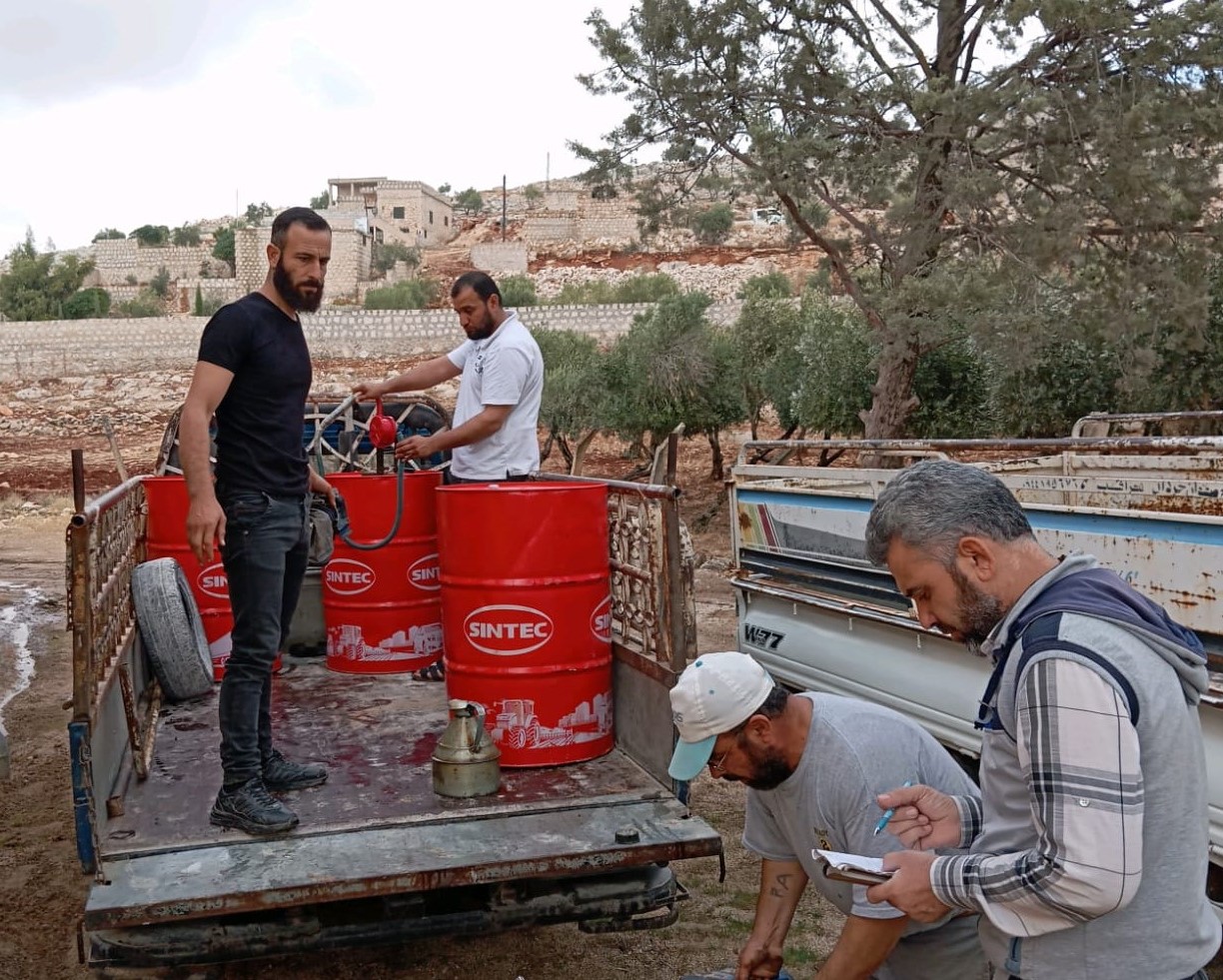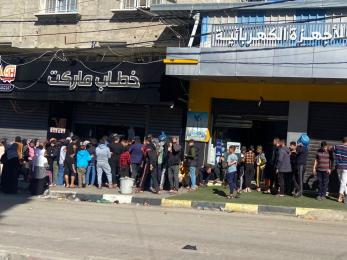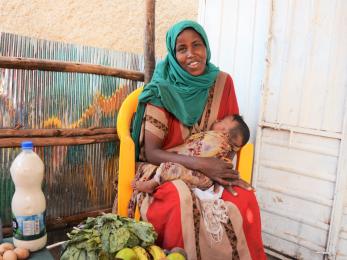Feeding the future: School lunches set kids up for success
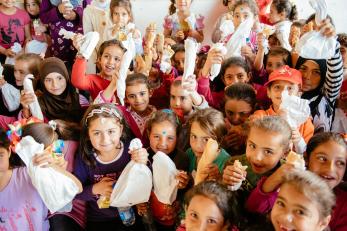
By 7 a.m. most mornings last spring, the kitchen at Mommy Made, a food skills training organization in Beirut, Lebanon, was bustling with staff lovingly preparing lunches for some of the city’s most underprivileged primary schools.
By 10 a.m., meals of chicken, fish, beans, salad, fruit or ma’ajinaat — small, doughy snacks usually filled with spinach, cheese or meat — were packaged, loaded onto refrigerated vans, delivered to the schools and distributed to every student at lunch time — for free.
Before Mommy Made’s food deliveries, 4-year-old Najya went the majority of her days at kindergarten without any lunch at all. She’s one of the lucky ones — just 25 percent of Syrian refugee children are enrolled in class in Lebanon — yet her family could rarely afford to send along the food she needs to be at her best.
Najya is not alone.
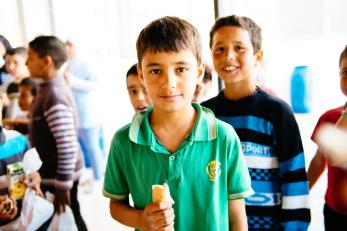
Missing meals is a stark, daily reality for many refugee and low-income families in Lebanon. Over a million Syrian refugees have flocked to the small country for safety from Syria’s civil war, and legions of people are barely scraping by as resources like jobs, food and shelter become increasingly scarce under the pressure. There are currently more than 1 million refugees and Lebanese citizens living in poverty in Lebanon.
Camelia, a staff member at Rawdat-al Toufoula School, which is located on the edge of a Palestinian refugee camp in Lebanon’s capital, Beirut, told us most of the students there are Syrian. “We also have Palestinian, Lebanese, Sudanese [students]. They are very poor,” she said.
“Some of the children don’t have food. They don’t bring food to the school,” she continued. “Some of the others bring a little sandwich from home, but it’s not enough, or something very little.”
Earlier this year, we partnered with Mommy Made and Arab Salim Women’s Cooperative, another local organization, to fill the bellies of students at three impoverished schools in Lebanon, including Rawdat-al Toufoula School. Nearly 40 percent of surveyed families who have children enrolled in these schools report not having the quality or quantity of food they need to be healthy.
But kids can’t learn without nourished minds and bodies.
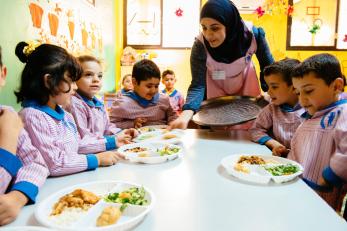
So, we helped Mommy Made and Arab Salim Women’s Cooperative get healthy lunches to the schools — and students — in their communities who needed them most.
We provided financial backing and logistical support to make the effort possible, including coordinating with school administrators, connecting with local farmers and food producers, and linking the organizations with the resources they needed to rehabilitate their kitchen spaces, learn about safe food handling, prepare nutritious meals and begin deliveries.
Children in Beirut received warm, balanced meals planned every week by Lynn Charabaty, Mommy Made’s dietician. On each of the five school days a different source of fiber or protein — chicken, fish, meat, beans — was featured, always with a side salad and healthy dessert.
“We try our best to make it [as] healthy as possible and tasty at the same time,” she explained.
“It’s a plate that’s varied, it’s colorful,” added Labiba, a worker at Rawdat-al Toufoula School who helps serve the lunches from Mommy Made. “It’s something that they’re not used to.”
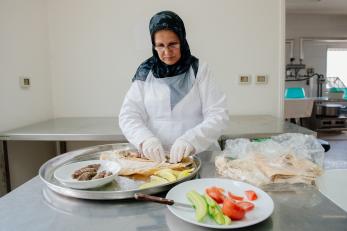
Cold lunches worked best for students at Habbouch Public School in southern Lebanon so, each weekday, the female staff of the Arab Salim Women’s Cooperative assembled and delivered bag lunches — a fresh sandwich, piece of fruit and a bottle of water.
Most days you could find the children enjoying their sack meals together on the playground.
“Some of them feel this is their main meal for the day. Their parents aren’t able to give them this much food,” said Linda Teto, a kindergarten teacher at Rawdat-al Toufoula School. “They came from poor families. They hardly have any money. They can’t provide this much food.”
“The food is filling them up with energy so they can concentrate,” she added. “When they’re hungry they can’t really pay attention.”
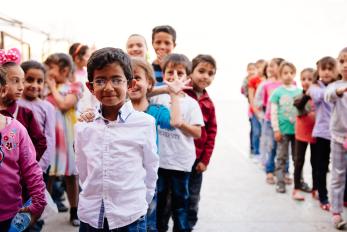
The guarantee of a balanced meal also increased students’ attendance and encouraged parents to choose education over child labor as they saw their household food costs decrease. On average, affected families were able to reallocate 10-15 percent of their income, per student, to other basic needs.
“The impact has been that the children are coming to school more frequently,” said Lynn. “They’re gaining weight, which is great. They’re energetic, they’re happier in general. They’re how kids should be. Not hungry.”
And because all the services and ingredients for the lunch program were sourced locally, it created more than 40 new jobs and pumped tens of thousands of crucial dollars into the Lebanese economy.
Throughout the course of a few months, our partners provided over 37,000 lunches to thousands of young students in Lebanon, giving them the fuel they needed to learn, grow and succeed, regardless of their family’s culture, background or income level.
“Some of the kids had enough food, but some didn’t. It depends on the child,” said Ms. Teto of the days before the program. “I used to tell them to share their food so that everyone would get some food. So none of them would feel that they were missing.”
“Now they feel they are equal. They eat the same thing. They say, ‘You have the same food that I do. We’re equal now.’”
